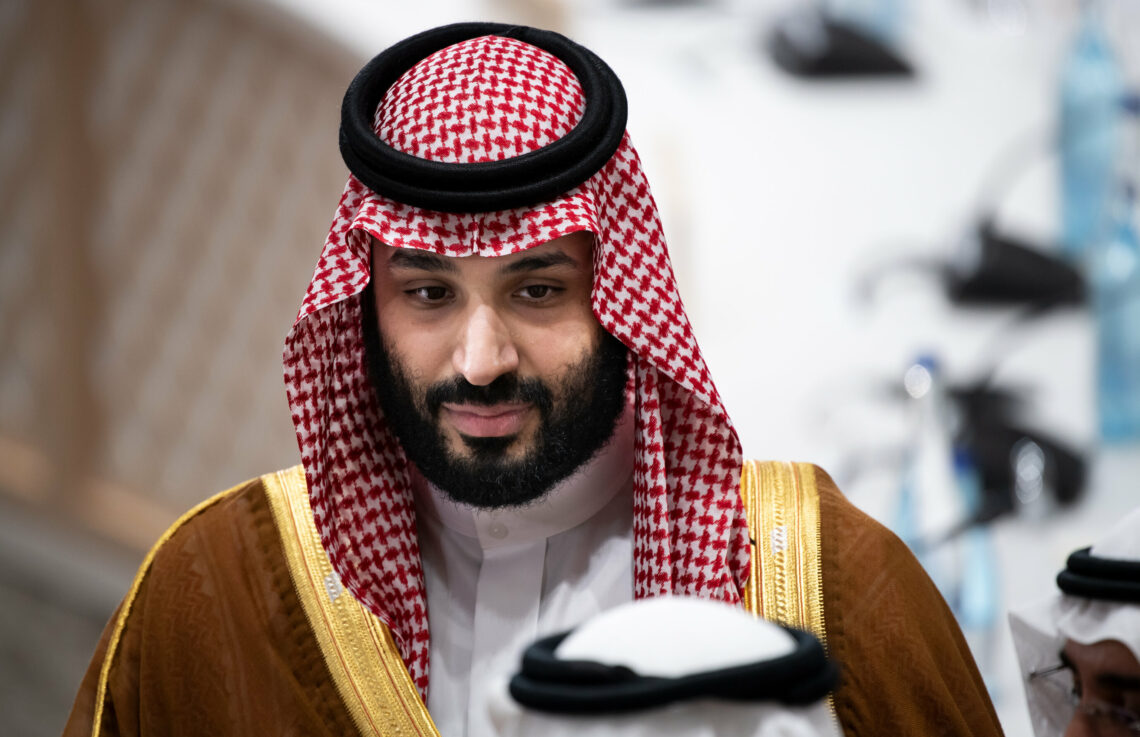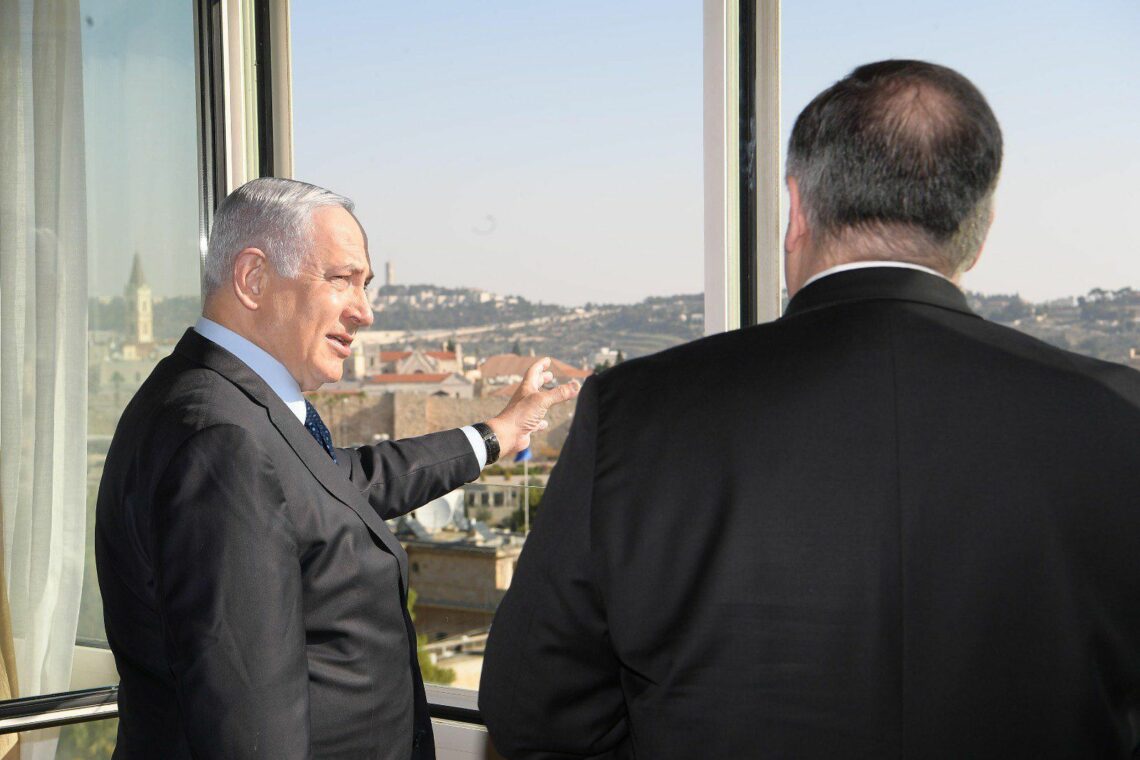Saudi Arabia’s dilemma: Normalize relations now or wait?
Though Saudi Arabia appears willing to normalize its relations with Israel, it must act cautiously. Riyadh is waiting to see which path President-elect Joe Biden will take, but many assume his approach to the Middle East will differ from the Trump administration’s strategy.

In a nutshell
- Saudi Arabia might strengthen ties with Israel
- Riyadh is weighing its options carefully
- Much will hinge on the Biden administration
The Kingdom of Saudi Arabia is a major player in the Arab and Muslim world and normalizing its relations with Israel would entail a host of changes. Many Arab countries would follow suit, potentially ushering in a new era of prosperity and development for the region. All eyes are now on Israel, the United Arab Emirates and Bahrain to see how fast the three countries implement the cooperation provisions outlined in the Abraham Accords – which include official visits, trade deals, business and research partnerships, and dozens of weekly flights scheduled to start by the end of the year.
Though Saudi Crown Prince Mohammed bin Salman – often referred to as MbS – appears determined to take the plunge, he has to take into consideration a number of factors that require caution, especially now that a new administration is going to take over in Washington. Nevertheless, he took the unprecedented step of hosting Israeli Prime Minister Benyamin Netanyahu and the United States Secretary of State Mike Pompeo in Neom, a futuristic city being built close to the Israeli city of Eilat.
The rapprochement between Saudi Arabia and Israel hinges on several issues.
The November 22 meeting was allegedly intended to remain secret but was leaked almost immediately to the media. Saudi officials confirmed that it had indeed taken place and gone on for several hours. The main topics were normalization and the Iranian threat. MbS probably wanted reassurance that the U.S. would contribute to the effort with state-of-the art military hardware like F-35 fighter planes. Secretary Pompeo, due to leave his post in a matter of weeks, was unable to give a firm commitment and no decisions were made. Mr. Netanyahu’s visit made headlines, not all positive. Saudi Foreign Minister Prince Faisal bin Farhan Al Saud hastened to deny the Israeli head of state’s presence – a time-honored practice in the Middle East intended to defuse criticism and let opponents keep silent without losing face. It did not stop Palestinian Prime Minister Mohammad Shtayyeh and Hamas spokesman Sami Abu Zuhri from condemning the event.
What was obvious to all was the extraordinary nature of a meeting between the prime minister of Israel and the Saudi crown prince. The rapprochement between the two countries entails significant economic and security aspects; it strengthens the Sunni front against Iran. However, progress now hinges on several separate issues.
Deal of the century
The sea change underway in the Middle East stems from U.S. President Donald Trump’s policies. He had made it clear that he intended to work for peace in the region. He actively encouraged secret relations between Israel and the Gulf states, which had been ongoing since the late 1990s. These included contact between intelligence services, meetings between high-ranking politicians and bilateral trade. But something more was needed to move the process forward: the intervention of a powerful force to take the lead and provide incentives for Arab states to set aside “Arab and Islamic solidarity” and their support of the Palestinians.
The Trump administration seized the moment, not so much to assist Israel or Arab states, but to advance the interests of the U.S. and score a foreign policy win.
During the Obama years, the U.S. had begun a slow retreat from the Middle East, having developed independent gas and oil resources. Many were frustrated by years of war and conflict in which the U.S. entangled itself. President Trump’s first foreign visit was to Saudi Arabia to take part in an Arab-Islamic summit. It was intended to create a vast Arab alliance to reduce terror and civil wars – a strong front in the face of Iranian threats, dovetailing with American interests. It was in his May 2017 speech there that Mr. Trump first talked about peace among the children of Abraham.
The Neom meeting was an occasion to take stock and ponder the right approach to the new situation.
The plan would have made possible a further withdrawal of U.S. troops by relying on the Gulf states. The latter would acquire huge quantities of American weapons and U.S. companies would invest in development, including in the Saudi crown prince’s Vision 2030 program. Contracts for billions of dollars were signed during the summit, but the plan was never implemented. Saudi Arabia, the Emirates, Bahrain and Egypt launched an economic and diplomatic blockade of Qatar to protest its support of organizations like the Muslim Brotherhood – which has been branded a terror group by several countries – and its close relationship with Iran.
Mr. Trump nevertheless went on drafting his “deal of the century” for Israel and the Palestinians, and left the JCPOA nuclear agreement with Iran. He continued pushing for normalization between the Gulf states and Israel. His electoral defeat now threatens some of these achievements.
The Neom meeting, the first official encounter between the Israeli prime minister and the Saudi crown prince in the presence of the U.S. secretary of state, was therefore an occasion to take stock and ponder the right approach to the new situation. Mr. Netanyahu and Mr. Pompeo probably tried to persuade MbS to agree to normalize without delay to present the new U.S. administration with a fait accompli that would be advantageous for Washington, strengthening its Iran policy. Unnamed sources told the media that it was to no avail.
The prince’s preoccupations
It appears the crown prince prefers to wait and avoid a move that might anger President-elect Biden, with whom he hopes to reach an understanding both on his support for normalization and for the continuing sale of American weapons. Riyadh needs the arms to stand up to Tehran.
MbS is well aware that his country is no match for Iran, which is nearly three times more populous and has advanced technological capabilities. Saudi Arabia closely monitors the Iranian nuclear program and is deeply worried that Washington will reinstate the JCPOA without suitable safeguards. It will be a key issue in the relations between the new administration and the kingdom.
In parallel, Saudi Arabia is in the process of completing the first nuclear plant for research purposes and is beginning to produce yellowcake – the first phase of enriching uranium – with the help of Chinese experts. Having so far refused supervision from the International Atomic Energy Agency, Riyadh is not eligible to receive advanced nuclear technology from the U.S.

But Prince Mohammed bin Salman has other worries as well. Normalizing relations with Israel could be met with anger and hostility in the Arab world and threaten the ruling family. It could trigger more domestic terror from jihadi organizations such as al-Qaeda and Daesh (also known as Islamic State). Unrest among the Shia minority in the kingdom’s eastern region could be fomented by Iranian agents. The main stumbling block to a rapprochement with Israel is still the so-called “Saudi peace plan,” which makes reconciliation contingent on an agreement with the Palestinians – a crucial point for King Salman.
The young prince knows he needs strong support from Washington. He fears he may not get it from an administration already suspicious of him after the murder of journalist Jamal Khashoggi and Saudi Arabia’s generally poor human rights record – despite the process of liberalization he has initiated.
Normalization with Israel and the Vision 2030, which the crown prince promotes, are welcomed by younger Saudis, who are desperate for more jobs and a better future. Meanwhile, their elders believe that Saudi Arabia, as the guardian of Sunni Islam’s holiest places, should not establish relations with the Jewish state.
Scenarios
MbS must tread carefully. He has so far remained impervious to the entreaties of Secretary Pompeo and Prime Minister Netanyahu. Israel and the lame-duck president are making an all-out effort to get more countries to normalize their relations. On December 10 another normalization agreement, this time between Morocco and Israel, was announced. Most of these negotiations are carried out secretly, though it was recently revealed that talks were ongoing with Djibouti. Its president hastened to say that normalization would be conditional on a “gesture” toward the Palestinians.
Then there is Iran. According to purported leaks from the Oval Office, an attack on that country was discussed. It is not known whether it would have been a relatively minor move in retaliation for missile strikes against the American military in Baghdad, or a concerted attack on Iranian nuclear sites which would have precluded a renegotiation of the JCPOA by President Biden. Secretary Pompeo probably broached the subject at Neom, by way of giving advance notice since the kingdom could be targeted by the Iranians in reprisals. Following the assassination of Iran’s leading nuclear physicist Mohsen Fakhrizadeh, Israel and Saudi Arabia are now both in a state of increased alert.
Speculations are rife regarding the path President-elect Biden will choose. He has said that his tenure would not be a “third Obama” term but has hinted that he would renegotiate the JCPOA. Would he insist on enough safeguards to allay the fears of Saudi Arabia and other Gulf states? Would he demand an end to Iranian subversion, especially in Yemen, where the Houthi rebellion, financed and armed by Tehran, has plagued the kingdom for the past five years? It is not certain. In fact, Gulf states such as the United Arab Emirates were quick to notice that key Democrats were condemning the assassination of Mr. Fakhrizadeh and reluctantly followed suit, though they were obviously delighted with the blow to Iran’s nuclear program.
What is beyond doubt is that the new president will take a very different approach concerning the Palestinian issue. He will probably cancel Mr. Trump’s “deal of the century,” reopen the Washington representation of the Palestine Liberation Organization and the American consulate in East Jerusalem. He could also resume financial assistance to the Palestinian Authority and to the United Nations’ relief operations for Palestinian refugees. He is unlikely to cancel the recognition of Jerusalem as the capital of Israel and return the embassy to Tel Aviv, having voted for its transfer to Jerusalem in 1995. Saudi Arabia would have no issue with that policy. Like all Arab states, it wants a solution to the Palestinian problem which would make relations with Israel easier.
But will the new U.S. president also encourage the normalization process? Members of the Biden administration tend to belong to the centrist wing of the democratic party, but the new president will obviously have to make concessions to the more radical left wing, led by Senators Bernie Sanders and Elisabeth Warren. Human rights issues might lead to tensions not only with Saudi Arabia but also with Egypt. Nevertheless, the kingdom can be assured of American support in its confrontation with Iran, and a continued supply of weaponry. Saudi Arabia spends billions of dollars on its armament program and can depend on a strong lobby in Washington.








